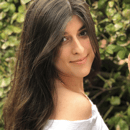Religious inclusion and representation is the fabric that has woven the diverse nation that is the United States. Before we had even become an independent nation, individuals from overseas flocked to our New World in order to escape the shackling religious persecution that has been an unsettling reality within the scope of global history. Though we’ve certainly since progressed from that point, religious polarization and prejudice is still an issue that plagues communities across the world today—perhaps most notably, the Muslim community. Today is Muslim Women’s Day, and we’ve worked with Bentley’s Spiritual Life Center to discuss the importance of Muslim representation across our campus and beyond. Read our interview with Myriam Imessaoudene, a freshman from Rutherford, New Jersey, as she details her experiences as a Muslim student at Bentley.
Her Campus Bentley: Why is diverse religious representation so important on college campuses?
Myriam Imessaoudene: Especially from a freshman perspective, when you make such a massive transition from your own community at home into an entirely new environment, it’s important to have a sense of community at school to ease in that transition. It’s been comforting to have a group of students right away who I share beliefs with, and it helps to make the adjustment into college much less lonely.
HCB: Do you feel well-represented within the Bentley community?
MI: In numbers, Bentley doesn’t have a very large Muslim population, but my hometown was quite similar in that regard. I still feel like I have a lot of resources available across campus with Spiritual Life and the Equity Center, both of which are instrumental for students that may not be as numerically represented in the student body. With religion in particular, it’s not something that you can identify in a person just by looking at them, so these campus resources are a great outlet to foster a well-represented and diverse environment.
HCB: What are your thoughts on Muslim representation in the media and pop culture?
MI: It’s disappointing that the media depicts the Muslim religion in such a negative light. Islam is a religion of peace, but people tend to get so swept up in the media’s stereotypes that they don’t realize this fundamental aspect about the faith. In movies, when you hear someone speaking in Arabic, it immediately has a negative connotation. There aren’t many outspoken Muslims in pop culture who make an effort to educate people about the religion and showcase it in a positive fashion. A$AP’s song “Plain Jane” is the only direct relationship that Muslims have with pop culture because of the “Alhamdulallah” lyric—but that’s just one word, and doesn’t illustrate the full story.
HCB: What do you think are some of the most significant misconceptions about the Muslim faith?
MI: The association of Islam with terrorism and violence. Since 9/11 and the rise of ISIS, you only hear about Islam in the news surrounding tragedies and negativity. That’s too broad of a generalization, and if you speak with a Muslim person and become more educated about the faith, you’ll find a very open and peaceful community.
HCB: In today’s political climate, why is it so important for students to be educated about Muslim culture and religion?
MI: When you see the President pushing for travel bands and disunity, it’s important for us to understand the root of the hatred. We should ask ourselves whether such acts are truly the product of the political climate, or are about stereotypes about the people themselves. In reality, the proportion of terrorism in Muslim culture is incredibly small. We need to be educated about the real, underlying factors that contribute to political actions—and understanding the basics of the religion is crucial in understanding the political context that surrounds it.
HCB: If you could give one piece of advice to college students in regards to the Muslim faith, what would it be?
MI: To someone of a different faith, I’d say to try to make an effort to speak with Muslim students or read scholarly articles about the faith so you can understand the facts about the religion. It’s not different from most other monotheistic religions such as Christianity and Judaism in its core beliefs. Be open, and question what you hear in the media and on social media—because that’s not always depicting the reality.
For Muslim women on campus, don’t let others’ opinions bring you down. Be proud of who you are and don’t get discouraged by the negativity that others express. Have faith and stand for what makes you happy, and don’t put yourself in an uncomfortable position for the sake of making others comfortable.
HCB: How can Bentley students encourage a religiously-inclusive environment?
MI: Because we’re such a global school with a large international student presence, it’s important for students to dismantle borders between one another and choose not to label people based exclusively on their religion. Look at one another for who we are as people, and try engaging in the many cultural events that Bentley offers to learn about and support diverse communities across campus.
Do you have any questions about Spiritual Life and religious resources on campus? Stop by the Spiritual Life Center on the top floor of the Student Center anytime.
Be sure to check out Her Campus BC’s article about what it’s like being a Muslim woman in the Boston College community!


